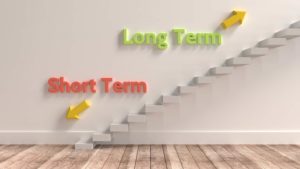FTSE 250 investment manager abrdn (LSE: ABDN) is down 20% from its 15 December 12-month high of £1.86.
This is a continuation of its slide since rumours last July that it would be relegated from the FTSE 100. Just before the chatter began, the stock was trading around £2.37.
The demotion duly happened the following month, prompting FTSE 100-tracker funds to sell their shares in the firm.
In my experience as a former investment bank trader, recently relegated companies can provide good bounce-back opportunities. That is not always the case, as it depends on how they react to their fall from the top tier.
In abrdn’s case, I think the reaction has been very good so far.
What’s the new plan?
Broadly, the firm sought to discard the businesses that were not working and focus on the ones that were.
More specifically, one part of this change is to reduce costs by at least £150m by the end of 2025.
Much of this will come from removing layers of management, particularly in the investments division. Having less bureaucracy in the fast-moving asset management and trading business looks a very good idea to me.
Another part of the plan is to sell off underperforming operations such as the US and European Private Equity operations. Instead, abrdn will focus on major profit-generating businesses, including the UK’s leading direct-to-consumer investment platform, interactive investor.
The final part is to maintain a strong balance sheet to safeguard the confidence of shareholders and clients.
How’s it going?
A risk for the firm is that the plan hits a major snag that could prove expensive to remedy. Another is the high level of competition in the sector that can pressure margins.
But its H1 2024 results on 6 August showed an IFRS post-tax profit of £171m compared to a loss of £145m in H1 2023. Earnings per share also increased – to 9.1p from a 7.7p loss previously.
And assets under management (AUM) increased to £505.9bn from £494.9bn. Net outflows in AUM had been a key reason behind abrdn’s demotion from the FTSE 100 last year.
Interactive investor saw 4% customer growth over the period, and net inflows increased to £3.1bn from £1.8bn.
Abrdn maintained its 7.3p a share interim dividend.
Big passive income generator
Last year, it paid a total of 14.6p in dividends, giving a current yield of 9.4%. This compares to the 3.3% average of the FTSE 250 and the FTSE 100’s 3.7%.
So, £11,000 (the average UK savings amount) invested in the firm now would make £1,034 this year. Over 10 years on the same average yield, this would increase to £10,340, and after 30 years to £31,020.
Crucially though, using the dividends to buy more abrdn shares would dramatically increase these returns.
Doing this (‘dividend compounding’) on a 9.4% average yield would add £17,057 instead of £10,340. After 30 years, an extra £171,529 would have been generated rather than £31,020!
The total investment of £182,529 would be paying £17,158 each year in dividends or £1,430 every month!
Will I buy the shares?
I already have a holding in the firm based on their very high yield and the promising company reorganisation plan.
The H1 results look to have justified my faith in abrdn, so I will be buying more shares very shortly.
This post was originally published on Motley Fool







